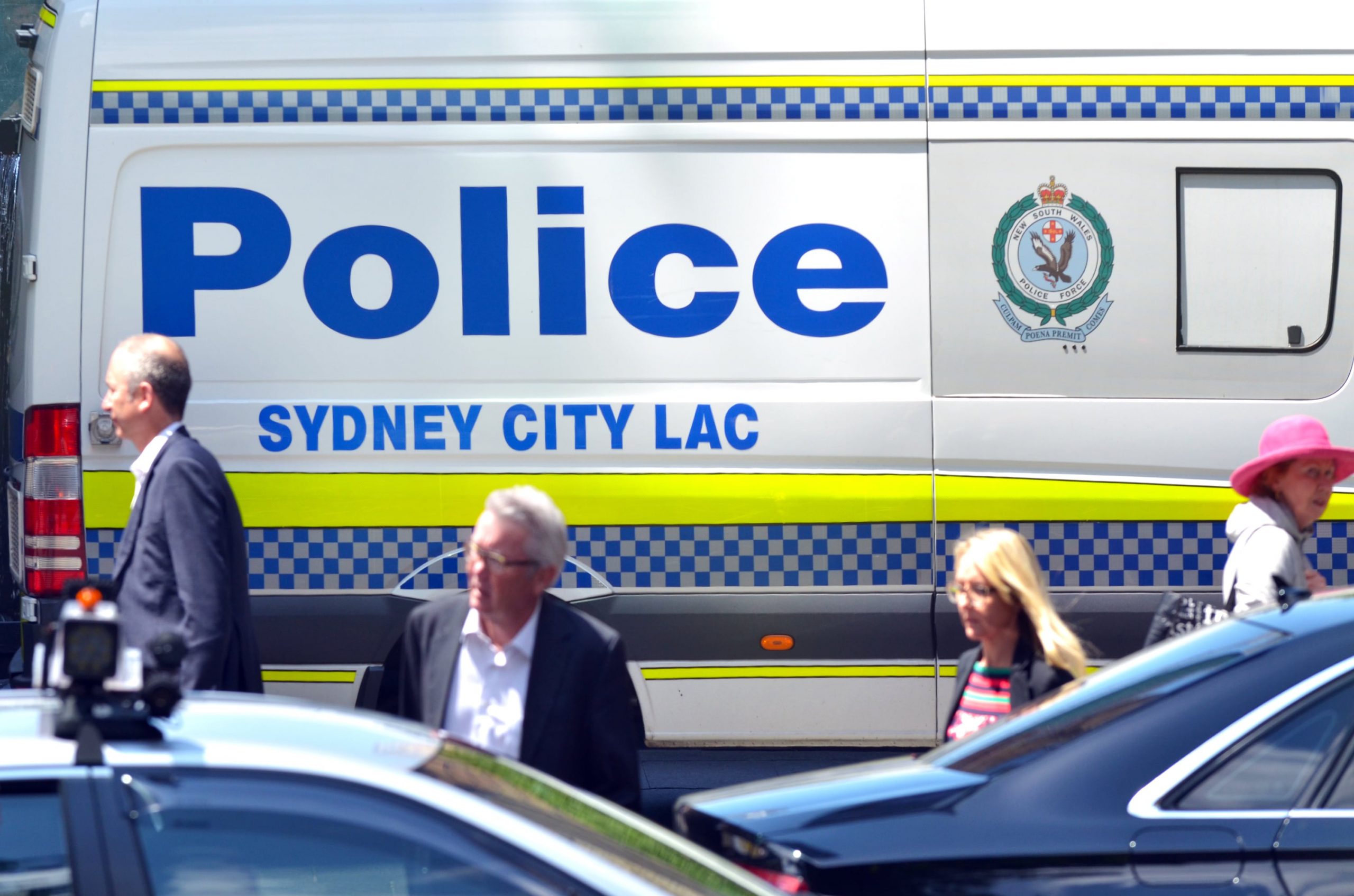Share This Article
National President of the Comanchero bikie gang 35-year-old Allan Meehan has been charged over allegedly breaching a serious crime prevention order, after evading police for two months.
Meehan was arrested at his residence in Benowa Waters in Queensland.
He was brought to appear before Southport Magistrates Court, where NSW detectives applied for his extradition to NSW – which was granted.
Detectives from the State Crime Command’s Criminal Groups Squad travelled to Queensland and escorted him to NSW.
Once he arrived in NSW and was to face court, Meehan applied for and was refused bail at Downing Centre Local Court by Magistrate Daniel Covington.
During this application, Meehan claimed that the reason he fled to Queensland was due to a $3 million hit on his life, which he was informed about by NSW Police.
Prosecutors at court argued that Meehan did not flee due to a threat on his life, but rather due to the imposition of the strict control order.
He moved to Queensland on 21 November 2022, which was the same date that the Supreme Court of NSW issued the order.
Meehan’s legal representative noted that whilst he emailed police to tell them he was moving and sought to comply with the order, he did not list an address.
Documents tendered in court made reference to a police listening device in which Meehan was reported remarking: “a lot of people will put their rights in the bin because they don’t wanna upset coppers brother. He goes ‘where are you moving to?’ none of your fucking business I don’t have to tell you.”
Police will allege that he breached the order by not providing the full address of his temporary accommodation, not providing an intended return date to his primary residence, as well as possessing and using a communication device with encrypted message capabilities.
The order imposed on Meehan included conditions requiring him to disclose travel, his place of residence, as well as conditions restricting his use of encrypted apps, and preventing him from associating with certain persons alleged to be bikies, among others.
Whilst his legal representatives presented that Meehan would offer to surrender his passport as well as $20,000 to be released on bail, the application was ultimately denied.
Queensland police have since issued a reciprocal control order containing similar restrictions to those with which Meehan is subject to in New South Wales. Prosecutors have advised that other states may also follow suit.
Meehan is to remain remanded in custody until his next court date.
In NSW, Serious Crime Prevention Orders (SCPOs) are control orders made by the NSW Supreme or District Court against certain individuals which seek to prevent or restrict their involvement in serious crime-related activities and/or terrorism offences.
Orders are made under the Crimes (Serious Crime Prevention Orders) Act 2016 (NSW).
A court is only able to grant an order against a person if they are at least 18 years old, and the court is satisfied that they have been convicted of a serious criminal offence, or have been involved in serious crime related activity, which they have not been convicted of, nor charged for.
If the basis for the order is that the person has been convicted of a serious criminal offence, it may be dealt with in the Supreme Court or the District Court, however where it involves in serious crime related activity and the person has not been convicted it must be made in the Supreme Court.
The Court must be satisfied that there are reasonable grounds to believe that the making of the order would protect the public by preventing, restricting, or disrupting the person’s involvement in serious crime related activities.
A ‘serious criminal offence’ includes drug trafficking, money laundering, extortion, corruption, causing sexual servitude/sexual slavery, participating in a criminal group, the unauthorised supply of firearms, murder and other violence-related offences that carry a maximum penalty of 5 years imprisonment or more.
Serious criminal activity refers to anything done by the person that was at the time a serious criminal offence, whether or not they have been charged.
If they have been charged, it may be considered serious criminal activity whether or not the person was tried, tried and acquitted, or convicted (even if the conviction has been quashed or set aside).
The Act provides broad discretion to the court in determining what conditions to impose, if any.
Orders may contain such provisions (prohibitions, restrictions, requirements etc.) as it considers appropriate for the purpose of protecting the public from serious crime related activities.
This includes imposing obligations to disclose ones residence, travel plans, employment arrangements, restrictions on whom you may associate with, and devices you can utilise.
However, a person subject to an order cannot be made to answer questions or provide information orally, including that which is subject to legal professional privilege, held in confidence or otherwise protected.
The duration of a SCPO must not exceed a period of 5 years.
As outlined in section 11, a person has within 28 days of the making of the order, to appeal this decision.
The Court of Appeal may confirm, vary, or reverse the decision, or may make any consequential or ancillary order.
Furthermore, applicants for the order or the person against whom the order is made may also seek to vary or revoke the order, as per section 12.
If the person against whom the order is seeking a variation or revocation, leave of the court must be granted to do so, in circumstances where there has been a substantial change in the relevant circumstances since the order was made or last varied.
The court must allow all parties in the original order’s proceedings a reasonable opportunity to be heard on the matter.
It will also have regard to the same factors that the court is required to have regard to in considering whether or not to make a SCPO and the content the order.
Breaching a Serious Crime Prevention Order in New South Wales
Section 8 of the Act prescribes that it is an offence to contravene a SCPO, with a maximum penalty of a $33,000 fine and/or 5 years imprisonment.
In the case of a corporation, a maximum penalty of a $165,000 fine is applicable.
If a corporation is convicted, the Police Commissioner, Director of Public Prosecutions or the NSW Crime Commission can apply to the Supreme Court for a ‘compulsory winding up order’.
This will be granted where the court is satisfied that there are no further avenues of appeal available to the corporation in respect of the conviction, and it is in the public interest, and ‘just and equitable’, for the corporation to be wound up.
In 2019, alleged members of the Rebel motorcycle gang, Damien Charles Vella, Johnny Lee Vella, and Michael Fetui sought to challenge the validity of such orders in the High Court.
The orders sought to impose strict conditions on the men’s movements including by banning them from travelling in a vehicle between 9:00pm and 6:00am (except in the case of a medical emergency), as well as by preventing them from associating with other bikies, as well as attending any premises associated with them.
It also forbid them from possessing more than one mobile phone and wearing any outlaw motorcycle club insignia.
The trio’s legal representatives argued that the law which established the orders was invalid as it breached the Constitution by interfering with the independence of the courts.
The principles of judicial independence and the ‘separation of powers’ has been set out in the case of: Kable v Director of Public Prosecutions (NSW) (1996) 189 CLR 51.
It essentially states that separation between the powers of the government and judiciary is necessary, and that a state cannot impose a non-judicial function upon its courts.
The lawyers argued that SCPOs amounted to further punishment for those previously convicted of a criminal offence and interferes with the liberty of those “even in circumstances where they have not committed any offence.”
They summarised that the power involved judges exercising non-judicial functions and acting at the ‘behest’ of the executive government.
The High Court ultimately rejected this argument noting that the courts retained substantial judicial discretion under the law.
This is evidenced in how the court considers numerous factors when making an order, and also may impose many different types of conditions.
It found that the SCPO Act provides broad principles which can be utilised to make a determination, leaving it ultimately up to the court as to whether an order is issued, which thus provides powers in accordance with judicial independence.
Therefore, rather than following the will of the executive government, a court in determining whether to impose a SCPO exercises ‘substantial judicial discretion’.
By Poppy Morandin.
Image credit: ChameleonsEye









